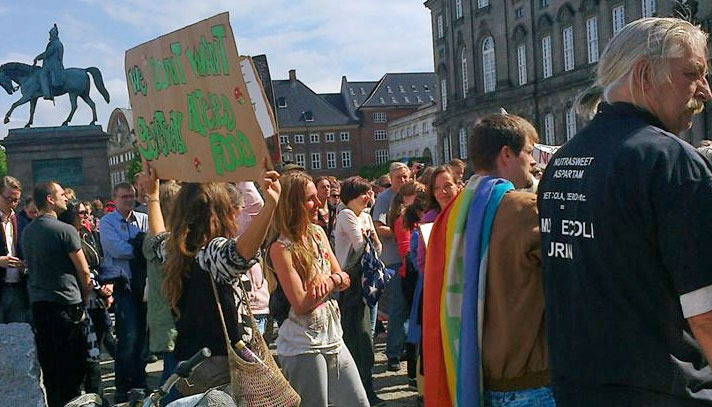The sale of a substantial stake in the Danish state-owned power company, DONG Energy, to the U.S. based investment bank Goldman Sachs sets a discouraging tone for the country’s fledgling climate law, according to NOAH Friends of the Earth Denmark.
The sale of 19% of DONG Energy to Goldman Sachs was opposed by nearly 70% of the Danish population, and led to the departure of the Socialist People’s Party (SPP) from the coalition government. The deal threatens Denmark’s green incentives, giving Goldman Sachs’s primary interest in profits influence over Danish energy politics.
Palle Bendsen from NOAH Friends of the Earth Denmark said: “This deal has far-reaching repercussions. The Danish government keeps a majority stake in DONG energy, but it is selling out part of its ability to control its energy infrastructure, and with it the Danish people lose part of their say in how we produce our energy.”
The departure of the SPP from the coalition government has forced Danish prime minister Helle Thorning-Schmidt to reshuffle her cabinet, as well as add new ministers. Part of this adjustment includes the former minister of climate, energy, and buildings becoming the new foreign minister with Rasmus Helveg Petersen filling the role of climate, energy, and buildings minister.
The new minister has put forward the proposal for a climate law, and has struck two deals with a narrow majority in parliament –securing a climate law and a 40% target for reduction of greenhouse gases by 2020. In 2012 there was an agreement between 95% of the parliament to reduce emissions in the energy sector by 34% by 2020. This new deal secures the remaining 6% outside the energy sector – mainly in transportation and agriculture.
However, the law, currently under public consultation, and the focus of NOAH Friends of the Earth Denmark’s work through their Big Ask campaign, places economic growth, competiveness, and employment at the forefront of the law, overlooking climate issues. The proposed law may be too weak to prevent the extraction of shale gas, or the extraction of oil in the North Sea.
Palle Bendsen continued: “The proposal is barely a climate law, with no emissions budget, and therefore no pathway that forces the government to do their job. We have a climate council with some independence but it remains to be seen if it will build on climate science and if governments will listen.”






